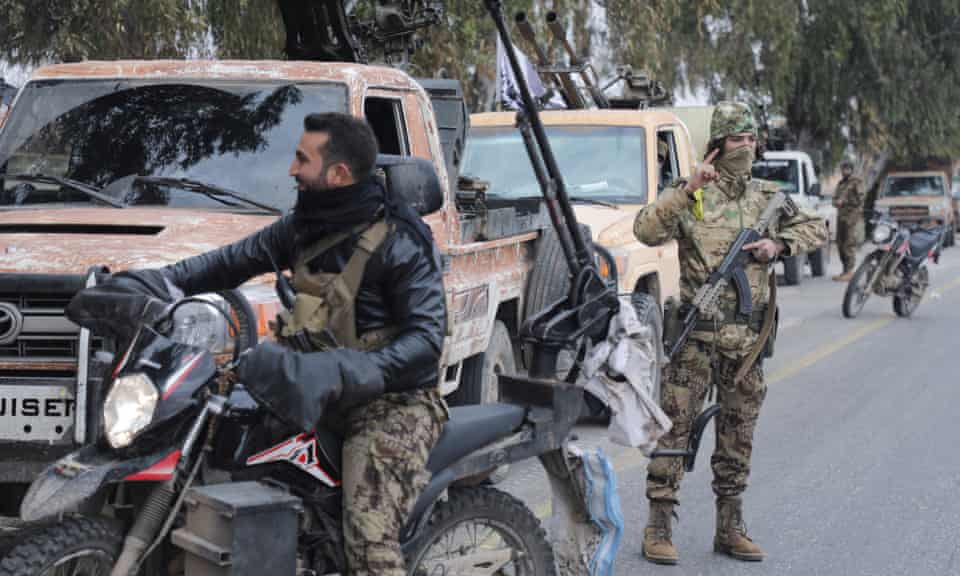As the conflict in Syria enters a new phase, reports from rebel factions claim they have reached the outskirts of Damascus in what they are calling the “final stage” of their offensive. This development could mark a significant turning point in a civil war that has ravaged the nation for over a decade. Here’s a closer look at the situation and its broader implications.
The Current Offensive: What’s Happening?
In recent days, Syrian rebel groups have intensified their operations against government forces. These groups, which include a mix of moderate opposition forces and hardline Islamist factions, allege they have breached key defensive lines around the capital, Damascus. If confirmed, this would be one of the most significant advances by rebel forces in years, raising questions about the stability of the Assad government.
While specifics on the ground remain murky, reports suggest that the rebels have leveraged coordinated attacks and heavy artillery fire to push toward the city. Social media channels and local news outlets have shown videos of battles raging near Damascus suburbs, with claims of advancing rebel forces being met by heavy airstrikes and artillery fire from the Syrian army.
Damascus: A Symbol and Strategic Prize
Damascus is not just the capital of Syria; it is a symbol of the Assad regime’s enduring power. Throughout the civil war, the city has remained under firm government control, even as large swathes of the country fell into rebel or extremist hands. A successful rebel push into Damascus would not only be a devastating blow to the Assad government but could also shift the political and military dynamics of the conflict.
The city’s strategic importance cannot be overstated. It houses key government buildings, military command centers, and economic hubs. Control of Damascus would also serve as a significant propaganda victory for the rebels, emboldening their supporters and potentially attracting new recruits.
Regional and International Implications
The renewed rebel offensive comes amidst shifting alliances and international involvement in Syria:
1. Russia and Iran: Both nations have been steadfast supporters of the Assad regime. Russian airpower and Iranian ground forces have played crucial roles in helping Assad regain much of the territory lost during the early years of the war. A rebel breakthrough in Damascus could force these allies to escalate their involvement further, risking broader regional destabilization.
2. Turkey’s Role: Turkey has backed certain rebel groups in Syria and maintains a military presence in the north. If Damascus falls, Ankara may see an opportunity to expand its influence, particularly as it seeks to counter Kurdish forces and secure its southern border.
3. Western Reactions: The United States and European nations, while less directly involved than in earlier phases of the war, will be watching developments closely. A weakened Assad regime could reinvigorate discussions about a negotiated settlement to the conflict.
4. Humanitarian Concerns: Any intensification of fighting in Damascus could lead to a catastrophic humanitarian crisis. The city is home to millions of civilians, many of whom have already endured years of hardship. International aid organizations are warning of mass displacement and worsening conditions if the conflict escalates further.
While rebel groups are framing this offensive as the “final stage,” history has shown that predicting the trajectory of the Syrian conflict is fraught with uncertainty. The Assad regime has survived numerous challenges before, often with the help of its allies. Whether the rebels can sustain their momentum and achieve a decisive victory remains to be seen.
For now, the situation in Damascus is a stark reminder of the enduring complexity and human cost of the Syrian civil war. As the world watches, the hope for a peaceful resolution feels as distant as ever. However, this latest development underscores the urgent need for renewed diplomatic efforts to end the conflict and alleviate the suffering of the Syrian people.
The claim by Syrian rebels that they have reached Damascus signals a critical moment in a conflict that has reshaped the Middle East. As battles rage on, the international community must grapple with the potential consequences of this escalation. Whether this offensive marks the beginning of the end for the Assad regime or another chapter in Syria’s protracted war, one thing is clear: the stakes for Syria and the region have never been higher.
